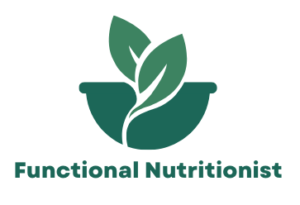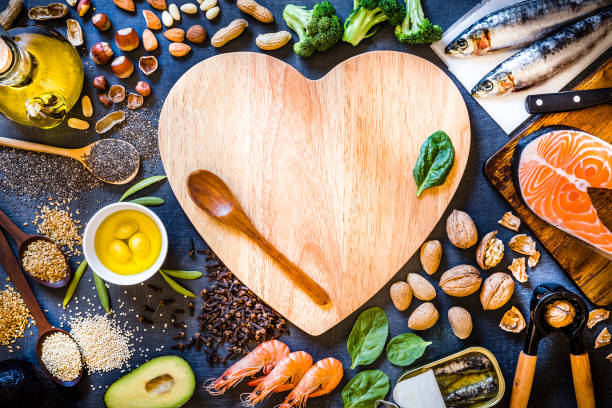Protein is a nutrient that is needed in large quantities. That is why protein is classified as a macronutrient. What are the functions of protein for the body? Here are the answer from functional nutritionist.
Protein is a large molecule found in every cell of the body. This nutrient is important for maintaining the shape, function, and workings of body tissues and organs. The human body has a fairly large protein content, which is 15.1 percent of the total body weight. Protein is composed of hundreds or thousands of small compounds called amino acids. There are 20 types of amino acids that bind to each other to make proteins in the body. The body makes amino acids to form proteins.

However, there are some amino acids that cannot be made by the body, for example leucine, lysine, methionine, threonine, tryptophan, and valine. You must get these amino acids through food so that the body can form proteins.
As mentioned, protein has a vital function in the formation and functioning of body cells. More completely, here are the uses of protein for the body.
- Forming antibodies
The function of protein is useful for forming antibodies in the immune system. Antibodies play an important role in fighting foreign objects, such as viruses and bacteria. So, the risk of contracting diseases due to infection is reduced. Protein deficiency has been shown to have a negative impact on immune function due to a decrease in the number of antibodies in the body. A study published in the Journal of Nutrition & Food Sciences (2016) also stated that protein deficiency also makes you more susceptible to viral infections, such as Zika and influenza.
- Providing energy reserves
The function of protein also helps provide energy for the body, just like carbohydrates and fats. One gram of protein can provide 4 kcal. Protein is the last energy reserve that will be burned by the body. The body will use protein when it is not getting carbohydrate intake. Even so, protein is still needed in large quantities so that you can be physically active in your daily life.
- Building and repairing body tissue
The body needs protein as a basic ingredient for building tissue in various parts of the body, such as bones, skin, muscles, hair, and nails. In order for body tissues to continue to function, the body must routinely break down old proteins and replace them with new ones.
However, there are some conditions that cause the body to break down more protein, such as muscle tears, wounds, or illness. Some of the above conditions can trigger damaged tissue. Well, protein helps repair tissue by accelerating wound closure or increasing muscle mass.
- Forming hemoglobin and blood plasma
The function of protein is useful for the formation of hemoglobin which is important for binding oxygen and distributing it to every tissue in the body.
Even so, hemoglobin can only be formed if protein combines with heme iron. This type of iron can only be found in animal meat. So, which is the best source of animal and vegetable protein? If anemia is due to iron deficiency, you should consume animal protein sources. Not only that, the function of protein also forms blood plasma. The types of proteins that form blood plasma are albumin and globulin. When circulating in the body, blood plasma carries electrolytes, vitamins, glucose, and amino acids.
- Composing enzymes
The use of protein is important for the formation of enzymes. Enzymes carry out almost all chemical reactions in the body’s cells. Without enzymes, the body cannot function properly. For example, the body needs the enzyme amylase to convert nutrients into energy. Amylase breaks down carbohydrates so that they can be converted into glucose. Later, glucose will be used as energy for activities.
- Forming hormones
Consuming protein sources is also important for forming hormones. Hormones are chemical compounds that exchange messages between cells, tissues, and organs. Hormones are produced in endocrine glands or tissues, then distributed to certain organs or tissues through the blood. For example, the hormone insulin sends a message to the body’s cells to absorb sugar into muscle cells and the liver.
- Maintaining body acidity
The function of protein is to maintain body acidity. Protein will take or release hydrogen so that body acidity remains balanced. Hemoglobin can also bind acidic compounds so that it can release oxygen throughout the body. This process apparently maintains blood acidity.
Excess protein can make the body’s acidity too high and cause acidosis. This condition is characterized by confusion, fatigue, weakness, shortness of breath, and dizziness. Conversely, acidity that is too low causes alkalosis. This condition makes you nauseous, vomit, hands tremble, muscles stiff, and numb.
- Balancing body fluids
The function of this protein is obtained from albumin and globulin proteins. Both types of protein are useful for attracting and retaining water levels so that they remain in the blood. If there is a protein deficiency, albumin and globulin levels also decrease. As a result, water enters the body’s cells and causes swelling, especially in the stomach area. This condition often occurs in children with malnutrition due to kwashiorkor.
- Maintaining body strength and flexibility
Some proteins make the body look tight and flexible, such as keratin, collagen, and elastin. Collagen is useful for maintaining the tightness and density of bones, tendons, ligaments, and muscles. Meanwhile, elastin helps maintain body flexibility so that it can move and stretch more freely. Keratin forms and maintains the strength of nails, hair, and skin. Not surprisingly, a protein deficiency makes nails break easily, hair falls out, and skin becomes dry.
Always meet your daily protein intake needs so that your body can function properly. You can consume animal protein sources such as eggs, chicken, beef, and fish. Vegetable protein sources can also be obtained cheaply, such as soybeans, tofu, and tempeh. The protein requirement for adult Indonesian men and women is 60 and 65 grams per day. However, body size, health conditions, and physical activity affect your daily needs. To be more precise, meet the protein requirement of 0.8 grams/kg of body weight per day.








